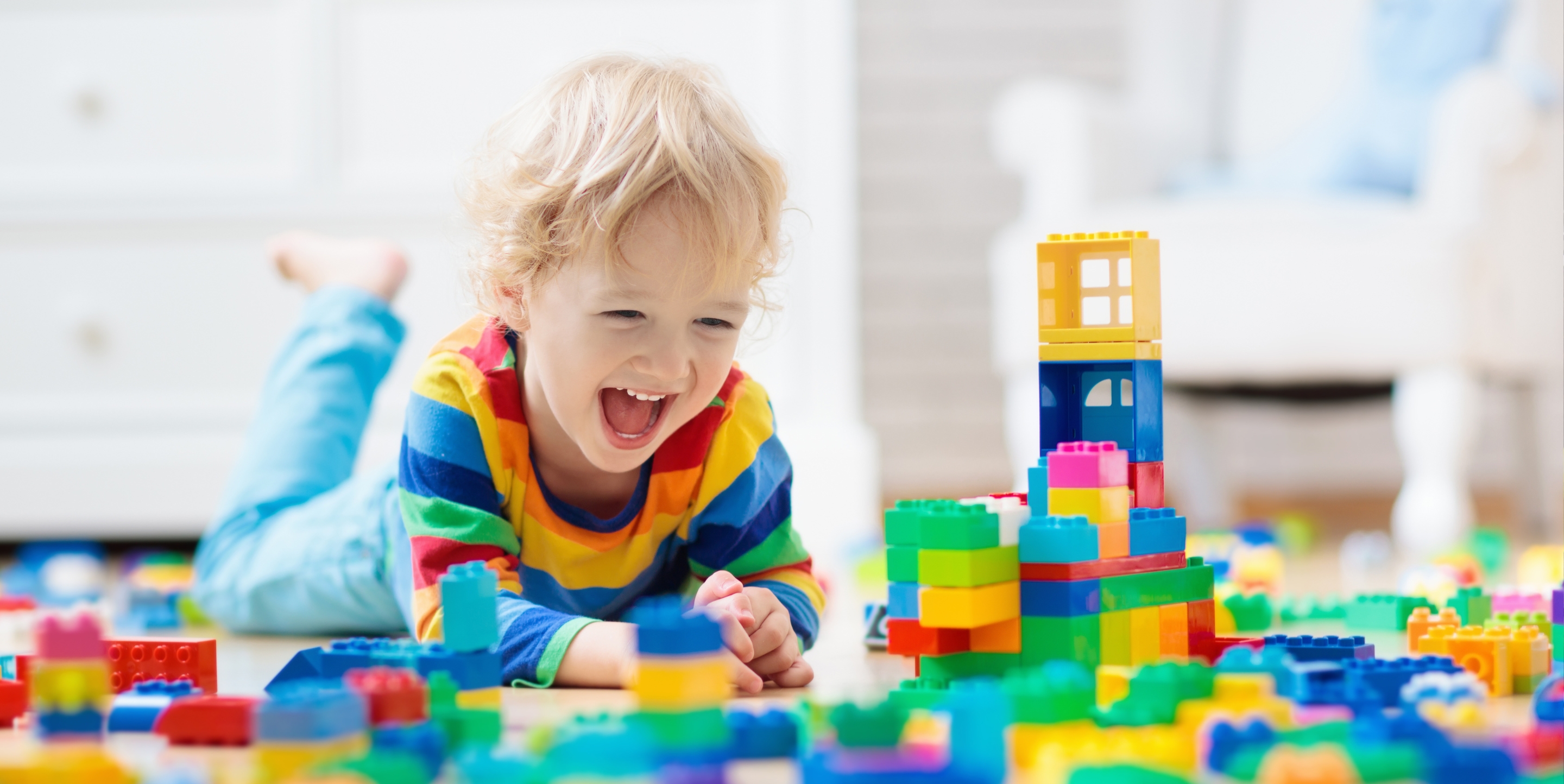How to Clean and Store Fresh Eggs
Discover how to clean fresh eggs and store them properly for safety and freshness. Learn best practices, storage methods, and when to wash eggs.
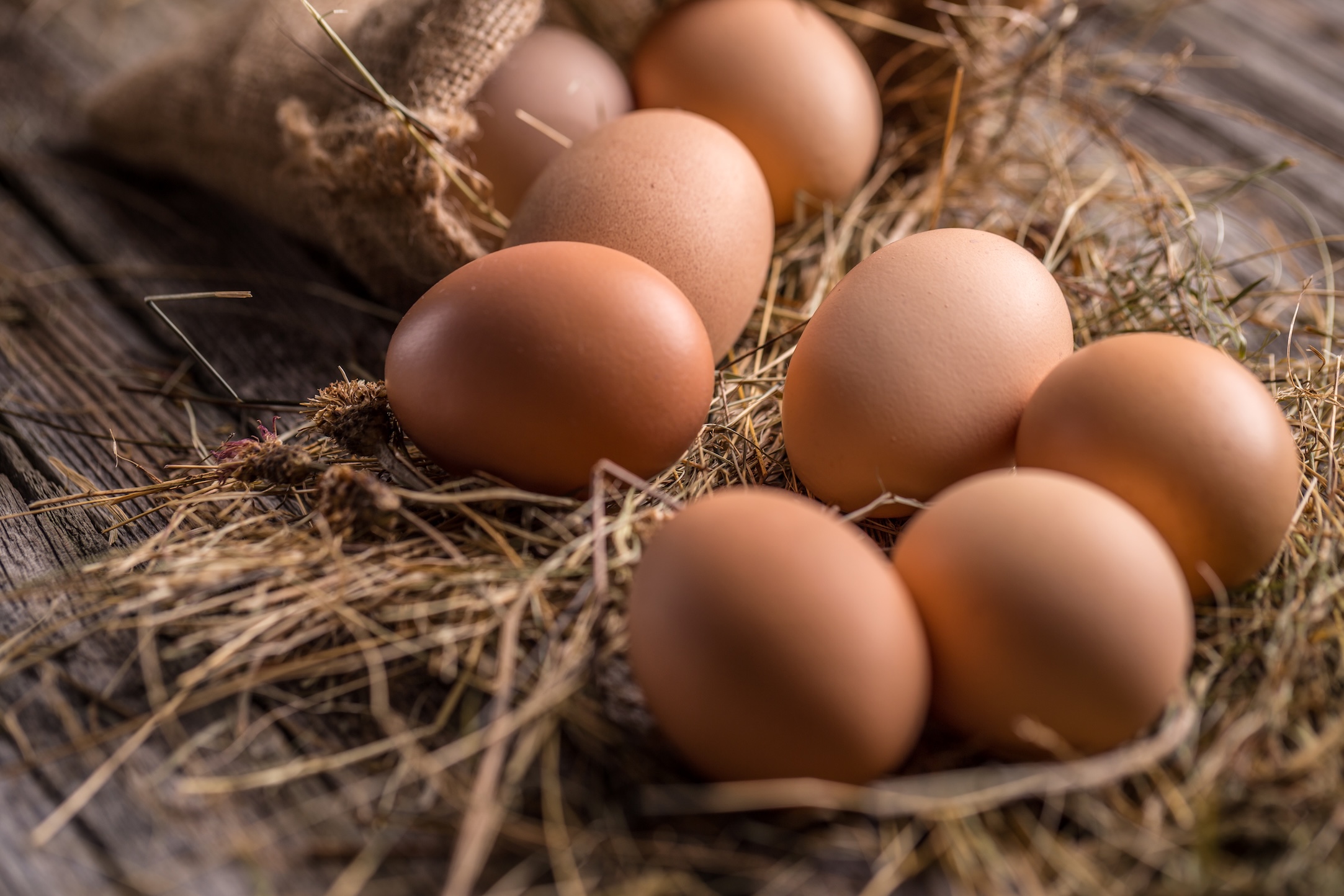
If you’ve ever cracked open a farm-fresh egg, you know the difference: richer yolks, better flavor, and top-notch nutrition. Unlike store-bought eggs, fresh eggs often come unwashed and unprocessed. They also have a longer shelf life when handled right.
Knowing how to clean fresh eggs keeps them safe to eat and preserves their freshness. This guide will walk through when and how to clean your eggs, and the best ways to store them after collecting.
<div class="rt-cta"><a class="cta-link-button inline-link" href="https://www.fleetfarm.com/c/chicks">Get Chicks at Your Local Fleet Farm</a></div>
How Are Farm-Fresh Eggs Different?
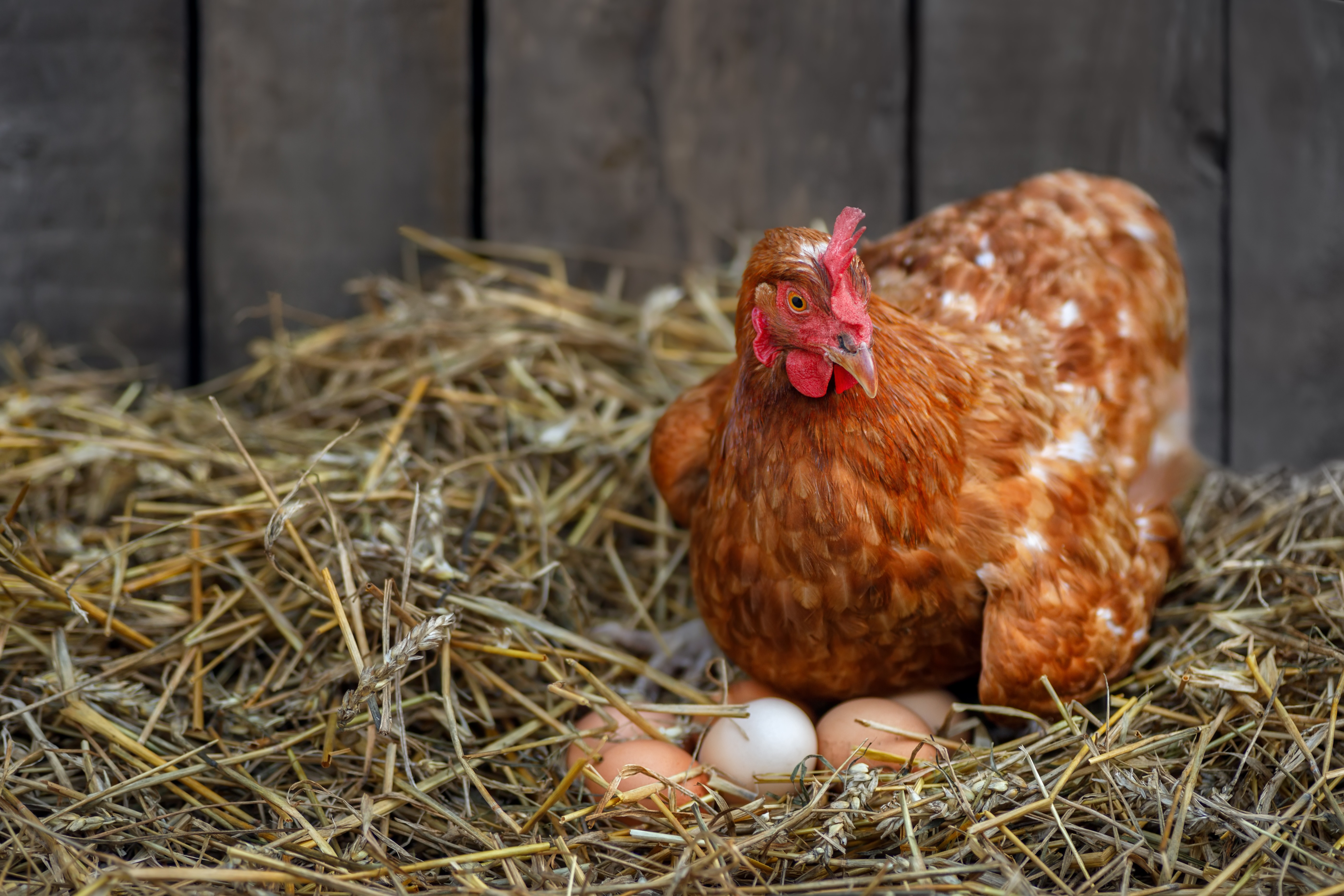
Farm-fresh eggs haven’t been scrubbed, sanitized, or stored the way store-bought eggs are. That means they still have their natural coating, which plays a big role in keeping them fresh.
Related Article: How to Raise Your Own Chickens Curious where these tasty eggs come from? Learn the basics of raising hens, choosing the right breeds, and setting up a backyard coop in this guide
What Is the Bloom?
When a hen lays an egg, it’s coated in a thin, waxy layer called the bloom, or cuticle. This natural barrier seals about 6,000 to 8,000 tiny pores on the shell.
The bloom keeps harmful bacteria out while still letting the egg breathe. It’s one of nature’s best designs, and why many backyard farmers choose not to wash fresh eggs right away. Preserving the bloom helps extend freshness without refrigeration.
Why Washing Removes Natural Protection
Washing fresh eggs removes the protective bloom, exposing the shell’s tiny pores. Once that barrier is gone, it’s easier for bacteria like Salmonella to get inside. That’s why washing should only be done when necessary and always followed by refrigeration.
To learn more about caring for your flock and their eggs, visit our Chicken Learning Center for helpful tips and guides.
In the U.S., egg producers must wash and chill eggs immediately. But in Europe, it’s common to leave eggs unwashed and store them at room temperature, relying on the bloom to keep them safe.
What is the best soap for cleaning eggs? Use a mild, unscented soap specifically labeled as safe for food handling. Avoid anything with strong fragrances or chemicals, as these can seep through the shell.
When (and If) to Clean Fresh Eggs
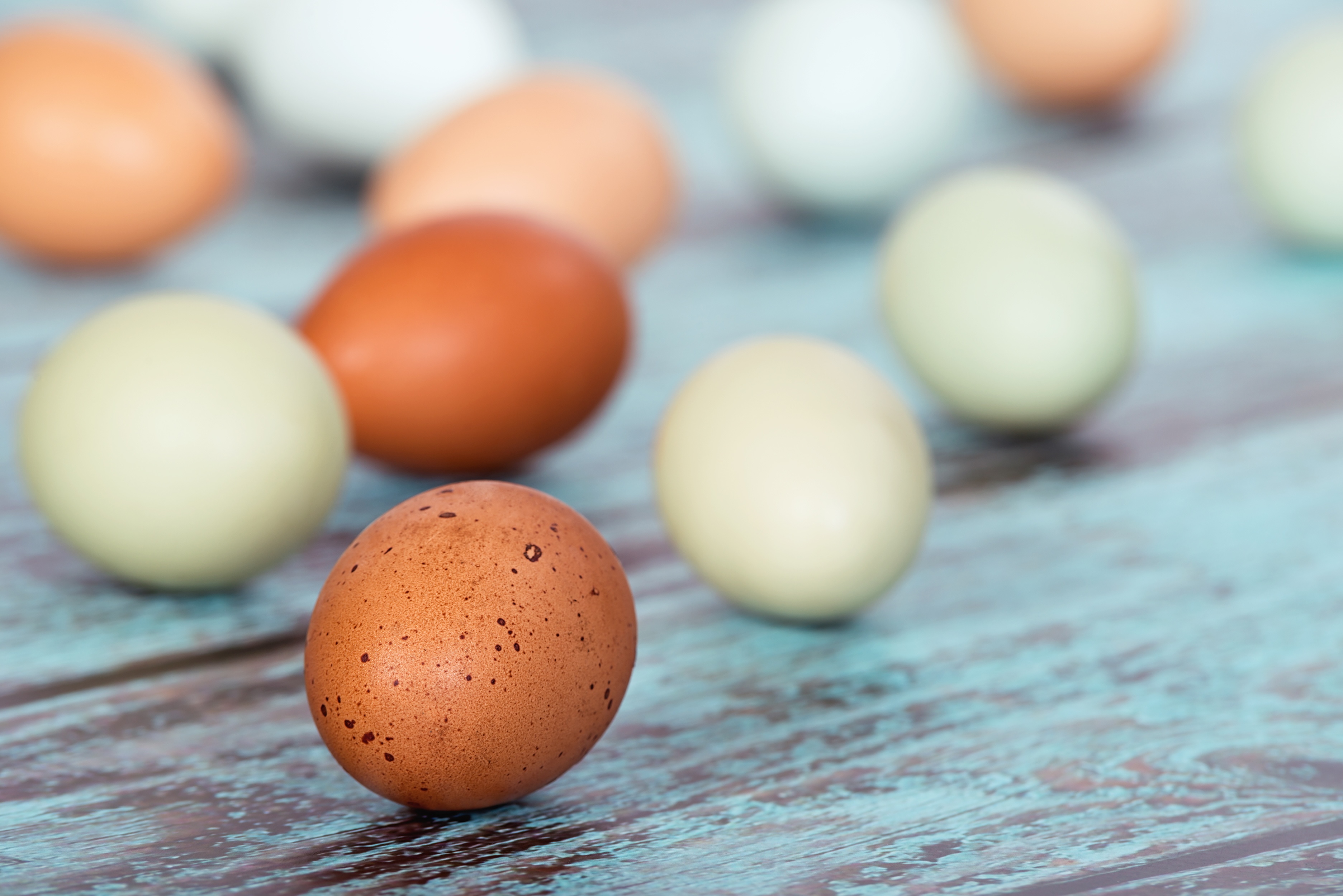
Not all fresh eggs need to be washed right away, and some don’t need it at all. The key is knowing which eggs to clean and when to do it safely.
Next, we’ll look at how to decide whether an egg needs cleaning and what you can do to avoid dirty eggs in the first place.
How do you clean dirty eggs for incubation? Avoid washing eggs meant for hatching. Instead, gently dry-wipe them with a soft cloth or fine sandpaper. Washing can remove the bloom and introduce bacteria, which may harm the developing chick.
The Clean-as-Needed Approach
Start by checking each egg for dirt or debris. If it looks clean, there's no need to wash it. Just store it as-is or gently wipe it with a dry cloth. Leaving the bloom intact helps protect the egg naturally.
If an egg is visibly soiled, you can spot-clean it just before use, not before storage. Washing too early increases the risk of contamination and shortens shelf life. When gathering your eggs, using gear from our Egg Collecting selection can help keep them cleaner from the start.
How to Prevent Dirty Eggs in the First Place
The easiest way to keep your eggs clean is to stop them from getting dirty in the first place. Collect eggs at least once a day (more often during wet or muddy weather) to prevent them from sitting in soiled nesting boxes.
Keep those boxes clean by changing the bedding regularly. Using straw or wood shavings helps cushion the eggs and keeps them off droppings and debris.
Related Article: Getting Ready for Eggs Want to be fully prepared before your hens start laying? Check out this guide for more helpful tips.
How to Wash Eggs Safely at Home
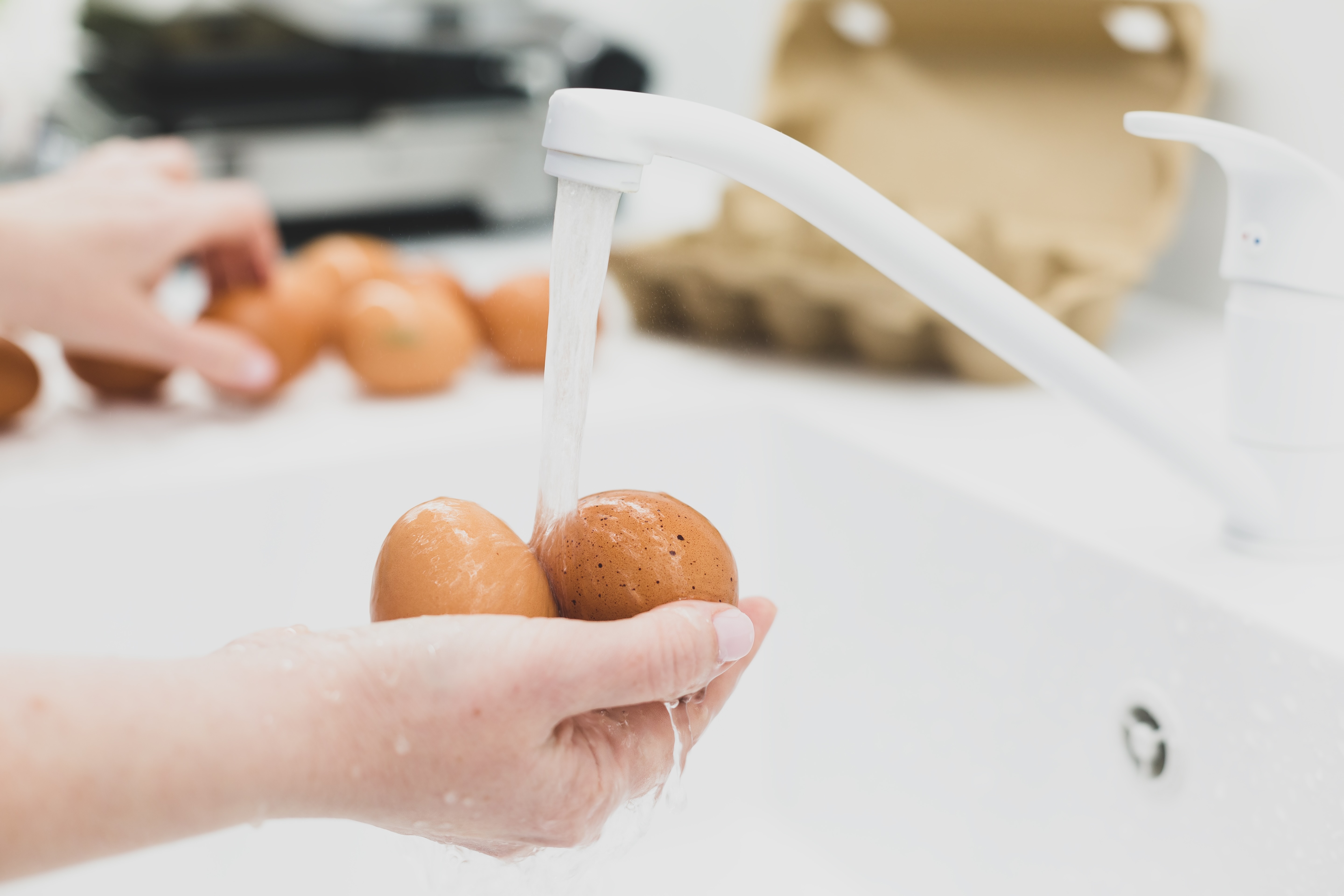
If you need to clean your eggs, it’s important to do it correctly. Using the wrong method, or even the wrong water temperature, can do more harm than good. Up next, we’ll walk through safe washing steps and when to use dry methods.
Water Temperature Matters
When washing fresh eggs, always use warm water between 90–120°F. The water should be warmer than the egg itself. This temperature difference causes the contents of the egg to expand slightly, pushing bacteria out rather than letting it in.
Using cold water has the opposite effect. It can create a vacuum that draws bacteria through the shell’s pores and into the egg, increasing the risk of contamination.
Step-by-Step Washing Instructions
Knowing how to clean fresh eggs properly keeps them safe and extends their shelf life. Start by rinsing each egg under warm running water—never soak them, as soaking can draw bacteria into the shell.
Use a soft cloth or brush to gently scrub off dirt. Avoid anything abrasive, which can damage the shell. If needed, you can use an unscented soap made for food or a very dilute bleach solution (1 tablespoon of bleach to 1 gallon of water).
After cleaning, dry each egg thoroughly with a clean towel before placing it in storage. Don’t forget to sanitize your sink, tools, and any surfaces that touched raw eggs to prevent cross-contamination.
Alternative “Dry Clean” Method
For lightly soiled eggs, try the dry-cleaning method. Using fine sandpaper—around 320 grit—you can gently rub off any debris without removing the bloom.
This technique helps preserve the egg’s natural barrier, making it a great option for eggs you plan to store rather than eat right away.
How do you clean eggs without removing the bloom? Use a dry cloth or fine sandpaper to gently remove dirt. Avoid water and soap, which strip away the protective bloom.
How to Store Fresh Eggs
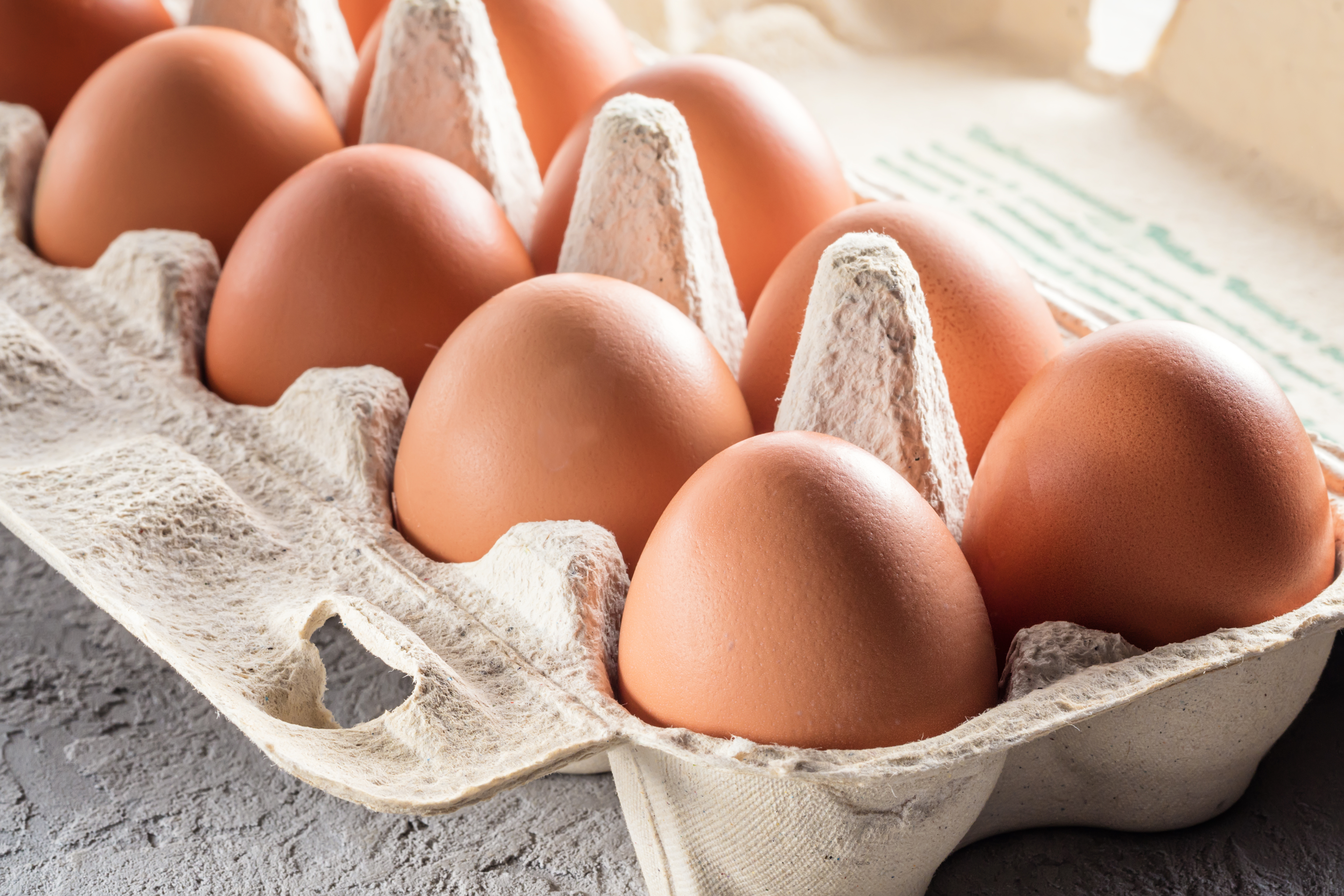
How you store fresh eggs depends on whether they’ve been washed. The bloom plays a big role in how long eggs can last and where they should be kept.
Next, we’ll break down the best storage practices for both unwashed and washed eggs, and why egg position matters more than you might think.
<div class="rt-cta"><a class="cta-link-button inline-link" href="https://www.fleetfarm.com/category/farm-livestock/livestock-care/poultry-supplies-equipment/poultry-feed-treats/_/N-3509563862">Order Chicken Feed</a></div>
Storing Unwashed Eggs
Unwashed eggs still have their protective bloom, which makes them more flexible when it comes to storage. You can safely keep them at room temperature for up to 2–3 weeks. If you want them to last longer (up to 3 months) store them in the refrigerator.
Always place eggs with the pointed end down. This helps keep the yolk centered and away from the air cell, which preserves freshness over time. When handled and stored correctly, unwashed eggs stay safe and tasty for weeks.
Storing Washed Eggs
Once eggs are washed, the protective bloom is gone. That means they must be refrigerated right away. Keep them at 40°F or colder to stay safe and fresh.
Store washed eggs in the main section of the fridge, not in the door. The temperature in the door can swing too much with frequent opening. Use a clean carton to protect the eggs from moisture loss and to block any strong fridge odors from seeping through the shell.
Why Cartons and Egg Position Matter
Storing eggs with the pointy end down helps keep the yolk centered and away from the air pocket, which slows spoilage. Using a carton adds extra protection by preventing moisture loss and keeping fridge odors out.
It’s also best to avoid placing eggs in open-door trays. The temperature there changes too often, which can shorten their shelf life. Stick to the main body of the fridge for the most stable storage.
Food Safety Guidelines for Egg Handling
Safe handling is key to avoiding foodborne illness even with the best cleaning and storage habits. Up next, we’ll cover basic safety practices and cooking tips to help you handle eggs without worry.
Can I wash eggs with vinegar? While vinegar is a natural cleaner, it’s not recommended for washing eggs. It can still remove the bloom and doesn’t sanitize as effectively as warm water with food-safe soap or a diluted bleach solution.
Best Practices for Raw Eggs
Raw eggs can carry bacteria like Salmonella, so safe handling is a must. Always wash your hands with soap and water after touching eggs, especially before preparing other food.
If you crack an egg, don’t return the shell or any part of it to the carton. That just spreads germs. And never reuse old egg cartons, since they can harbor bacteria and cross-contaminate clean eggs.
Safe Cooking and Serving Tips
To be safe, always cook eggs until the yolk and white are firm. This kills any harmful bacteria that might be present.
Once eggs have been refrigerated, don’t leave them or egg-based dishes out at room temperature for more than two hours. After handling raw eggs, be sure to wash and sanitize anything they touched to prevent cross-contamination. This includes mixing bowls, counters, and utensils.
Final Tips for Freshness and Safety
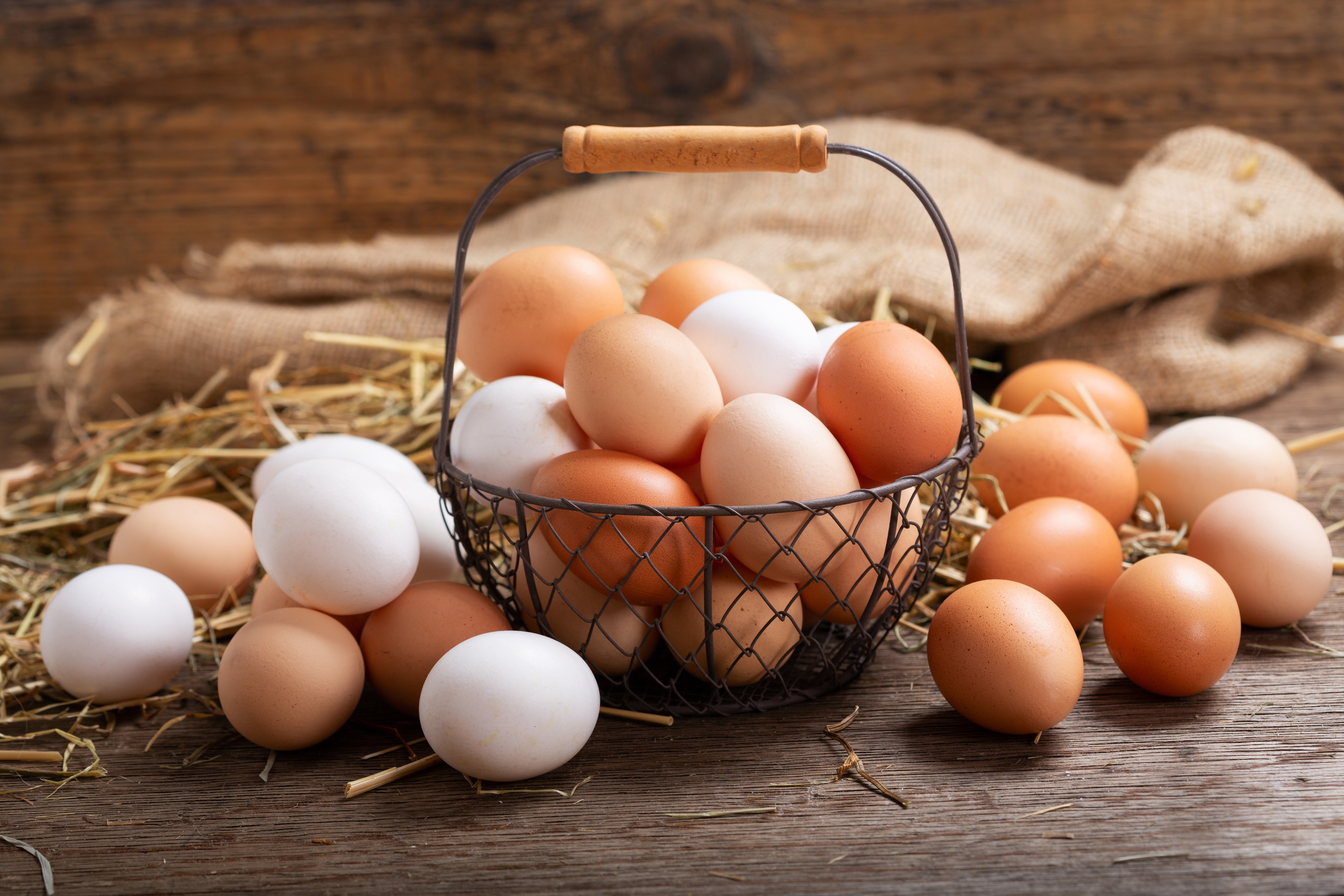
Keeping your eggs fresh and safe doesn’t have to be complicated—just follow a few smart habits.
- Collect eggs daily to reduce the chance of contamination.
- Store unwashed eggs at room temperature for up to 2–3 weeks, or refrigerate them for longer shelf life.
- If you're washing fresh eggs, use warm water and dry them thoroughly before storing.
- Always handle raw eggs with care—wash hands, clean surfaces, and cook eggs fully.
- Use cartons and store eggs pointy-end down to help them last longer.
<div class="rt-cta"><a class="cta-link-button inline-link" href="https://www.fleetfarm.com/category/farm-livestock/livestock-care/poultry-supplies-equipment/incubators-hatchers/_/N-3911363758">Browse Incubators & Hatchers</a></div>





